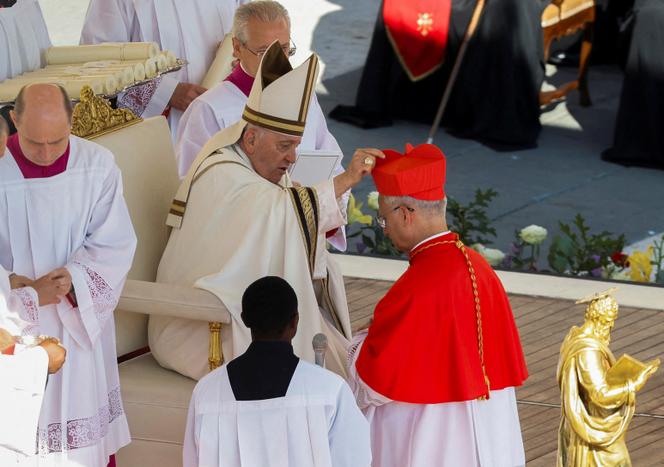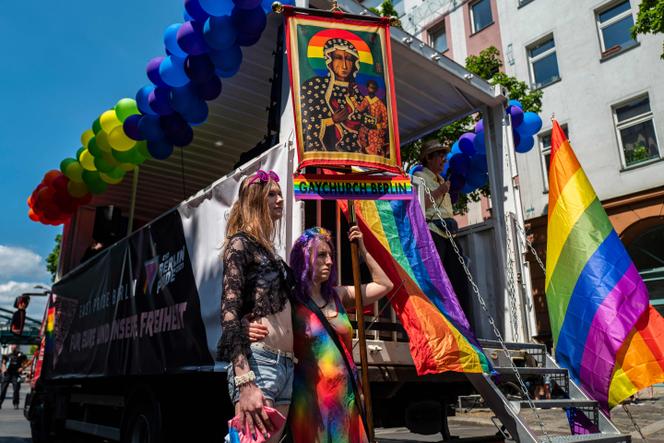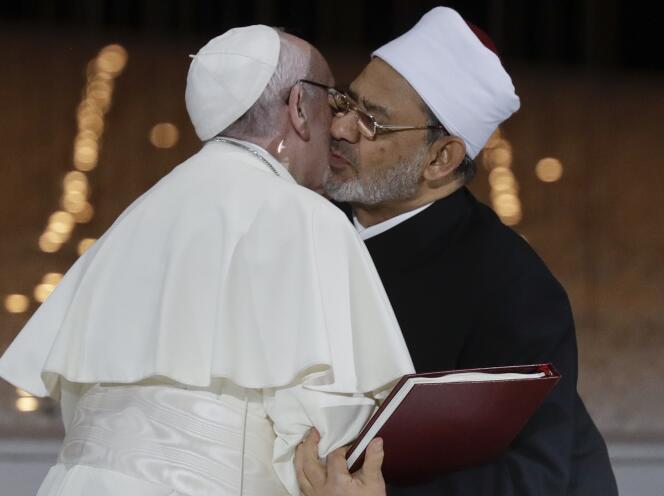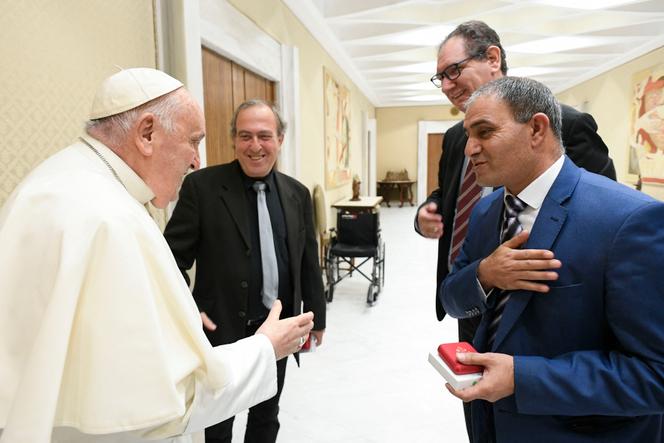


It is a customary task immediately following a conclave: after a period when divergent views are displayed, it is the responsibility of the pope, elected on Thursday, May 8, to reassure regarding the unity of the Church. The voting method itself, which requires a two-thirds majority, is designed to dispel the shadow of division.
This concern can be reflected even in the choice of papal name. In 1978, John Paul I chose to unite in his name his two predecessors, John XXIII and Paul VI, whose divergent orientations had divided the Church. By choosing the name Leo XIV, in reference to Leo XIII, American Cardinal Robert Francis Prevost demonstrates the importance he places on the Church's social fabric. Yet, during his address from the balcony of Saint Peter's Basilica on Thursday, he did not fail to remind us to be "united, hand in hand..."
This need for unity is also part of Francis's legacy. The Argentine pope was praised for embodying the Church's presence in the world with uncommon strength. But his governance – solitary, erratic and sometimes authoritarian – was subject to criticism. During the general congregations preceding the conclave, cardinals explicitly requested a more collegial mode of governance and expressed a need for appeasement. The reform of the Curia, initiated by Francis, will need to be completed without disrupting the institution, at the risk of promoting inertia and sabotage.
The most immediate task for his successor will be to continue the works of the synod on synodality, the major assembly that considered the future of a more inclusive Church in 2023 and 2024. In March, the Argentine had extended its work until 2028, thereby imposing this responsibility on the new pope. And while the approach has faced opposition, the general congregations revealed a relative consensus in its favor. On Thursday, Leo XIV expressed his desire to continue on the path of a synodal Church.
The results of this immense undertaking remain uncertain. While laypeople, including women, have been involved in the discussions, the role they will ultimately hold in the future of the ecclesiastical institution is not yet defined. Francis himself never gave a clear position on the issue of ordaining women deacons, a question that has stirred the Church for years. Prevost had expressed his reservations.

Other subjects hold significant potential for division, such as liturgical issues (whether mass should be celebrated according to the old or new rite) or questions of "morality" – including the blessing of homosexual couples, authorized by Francis, or communion for remarried divorcees, where he advocated acceptance without altering the doctrine. On these topics, the divide is between conservative and progressive camps, but it also follows geographical fault lines, with Southern churches often resistant to change.
The successor to Francis will also need to address the issue of sexual violence within the Church. After a delayed awareness during a trip to Chile in 2018, Jorge Bergoglio introduced measures such as requiring the clergy to report abuses to Rome and establishing a system for receiving reports. The issue is far from resolved in the West, and it could emerge in countries that have so far neglected it. During his tenure in Peru, where he was the bishop of Chiclayo, Prevost faced one of the largest cases of sexual violence in the country.
Another particularly pressing issue in the West is the exodus from places of worship and the decline in vocations. For example, more than 500,000 people left the Church in Germany in 2022. In France, adult baptisms, although on the rise, do not compensate for the overall decline in the number of baptisms.
The cardinals and the new pope will need to rekindle the interest in Catholicism in secularized Western countries that Francis sometimes seemed to neglect. Leo XIV, born in Chicago, will need to pay particular attention to the tensions within his own Church, the United States, which is beset by deep divisions.
Elsewhere, particularly in Africa, it will be necessary to find ways to retain those who are drawn to evangelical churches. Interfaith dialogue, particularly with Islam, also emerged as an important theme during the general congregations.

In 2019, Francis signed a landmark document in Abu Dhabi, United Arab Emirates, with Ahmed Al-Tayeb, the Grand Imam of the Al-Azhar Mosque in Cairo, entitled Human Fraternity for World Peace and Living Together, signaling a desire for rapprochement with Islam. Leo XIV will need to continue this effort, partly to ensure the safety of Catholics living in predominantly Muslim countries.
Keen on maintaining a strong voice in the world, the Catholic Church will also need to continue along the path of diplomatic voluntarism charted by Francis. However, the new sovereign pontiff will need to impose his own style and convictions. The Argentine pope spoke tirelessly about the war in Gaza, at the risk of causing tension. He used the term "genocide," a label far from universally accepted. His actions regarding Russia's invasion of Ukraine were also criticized, with a concern for balance that sometimes led him to equate the aggressor and the attacked.

The moral authority of the Holy See risks being severely tested in a world where authoritarian and populist currents are strong. US President Donald Trump's administration had not hesitated to attack Pope Francis's open stance on migrants, nor to target the works of the American Catholic Church.
Another contested legacy from the previous pontificate is the 2018 agreement with China. The details of this deal remain secret, but it grants Beijing a co-designation role in appointing Chinese bishops – a move that critics argue undermines Vatican authority. This issue also continues to stir internal divisions within the Church.
Translation of an original article published in French on lemonde.fr; the publisher may only be liable for the French version.
